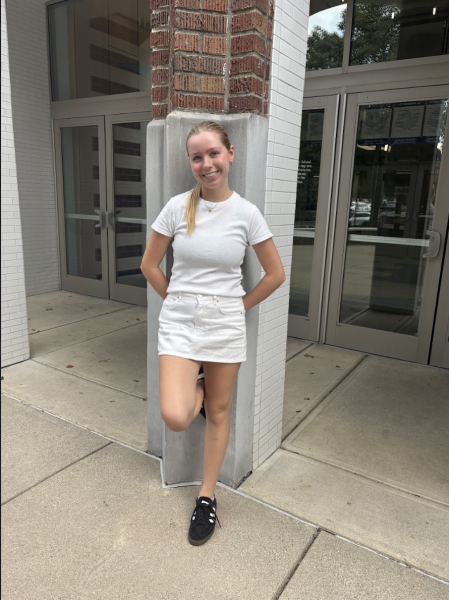Floridians and U.S. citizens alike have questioned in disbelief the vast damages to the Florida area caused by two furious hurricanes–Milton and Helene.
Kentucky, which only received a minimal amount of winds and broken branches, is relatively fortunate. However, some KY residents feel the brutality of this storm more, especially those with relatives and close affiliations to Florida and hurricane-prone areas.
One of these is U.S. history teacher Beth Fahlbush, a former Florida local with family in the golf area of Englewood, FL.
Fahlbush said, “My family is currently in the cleanup stage…my parents have a place close to the key and my husband is helping them clean up right now… they had to completely rip up all the floor, drywall had to be cut and all of the furniture had to be taken out.”
She said that being on the key, damages were “pretty catastrophic.” Adding that this clean up is a large one, despite the fact that there is a relatively consistent flow of hurricanes hitting this area during the specific hurricane season.
Which according to the Florida Climate Center is between mid-August and November, causing a continual fear in residents for this 3 month period.
To tackle on, not only do these storms cause destruction to those residing, but the continual storm surges affect creatures, organisms, and the general earth as it is torn off, thrown down, and trampled upon by large amounts of water.
Fahlbush said, “Being there and experiencing this, you can tell that the elements really change after a major storm…” This could be sand more swept inland, watercolor darkened and murkier in appearance, increased erosion, and of course fallen and destroyed plants and trees.
But despite this, Fahlbush concurs that it is an extremely fragile time for Americans recovering from this tremendous event, be it their homes, family, or other, the feeling of loss is in multitude.
In light of this, there are several ways in which one can easily support this cause, even from a distance, while we as a nation start to look in an upward direction.
As an example, supporting non-profits like Habitat for Humanity, which has a specific section dedicated to hurricane cleanup. As well as other wildlife and climate research organizations dedicated to the cause. But in the meantime, lending a caring ear to those around experiencing this heartache can be an extremely costless yet most attentive way to start.




